Which businessman is the most influential in the making of government policy? The answer came to me when I received a letter fining me £80 for forgetting to renew my car insurance by the correct date. But it could also have come to me had I forgotten to fill out of council tax enquiry form (fine £70), missed getting in my tax return by one day (£100), or got caught in a box junction in the King’s Road which has two sets of traffic lights in quick succession (£130).
It is, I have come to believe, Michael O’Leary. The Ryanair boss has mastered a business model whereby you lure in the customer by offering a product at a seemingly giveaway price — and then, in effect, trap him into paying huge extra charges by exploiting his forgetfulness, his failure to read the small print or his simple misfortune. Hence you can buy your flight to Dublin for £19.99, but if you fly often enough, sooner or later you are going to pay £70 to reprint your boarding pass at the airport, £110 to change a name mistakenly mistyped during the booking process or up to £130 to check a bag into the hold.
I wouldn’t describe taxes as being at ‘giveaway’ levels, but the same principle can be seen at work. While the government crows about holding down tax rates, and councils boast about freezing council tax, they count on extracting money from us in the form of fines. Take Hammersmith and Fulham Council, frequently described as a ‘model’ Conservative-run local authority. This year it reduced council tax by 3 per cent, the sixth year in seven that it has done so. But there is, of course, a sting in the tail. You don’t have to live, drive or breathe in the borough for long before you will start having to shell out in unofficial taxes. Last year, the borough raised £13 million in traffic fines, £2.7 million of it from one box junction alone, which catches 111 drivers a day; many motorists report that, thanks to the phasing of the lights, it is virtually impossible to avoid sometimes being caught in the box.
Hammersmith and Fulham’s protestations that it is only helping traffic to flow more freely were somewhat undermined in June when a leaked email from the parking enforcement team congratulated staff with the words, ‘Another record month guys, well done.’ Funnily enough, Hammersmith is planning even more cameras at box junctions. Other councils are eyeing the spoils: those outside London have asked the government permission to raise parking fines from £80 to £130.
Income tax, too, increasingly runs on the Ryanair principle. While the Chancellor boasts of cutting the top rate and of raising the individual tax-free allowance, HMRC is busy clawing back money in aggressive fines. This spring, 850,000 taxpayers were fined at least £100 for failing to complete their self-assessment tax returns — with all the pernickety detail which they involve — by 31 January. Many went on to be stung for extra daily fines of £10, up to a maximum of £900. Next year the bonanza will be even greater: the rules have been changed so that every taxpayer earning more than £50,000, and who has a partner in receipt of child benefit, will have to fill in a self-assessment tax return, which will mean thousands more victims.
Time was when one might have expected the Office of Fair Trading to fight against Ryanair-style pirate pricing, on the grounds that hitting people with extra, last-minute charges at vastly disproportionate cost to the product being sold amounts to extortion. But now the government seems to encourage it. True, it did belatedly outlaw the use of wheel-clamping on private land, which had been ruled by Scottish courts to be extortion 20 years ago. But contained within the same bill were new measures to make it easier for private companies to extract money from unsuspecting motorists. Not only will the DVLA happily sell the home addresses of motorists, but parking and traffic enforcement companies have been granted new powers to pursue the keeper of a vehicle.
The result has been a bonanza in dubious charges. Try to drop off a passenger outside the terminals at Luton or Stansted Airports now and you will be faced with a minimum charge of £2 — or, if you stop in the wrong place or leave your vehicle unattended for moment, a ‘charge’ of up to £80, enforced by a fleet of CCTV-equipped Smart cars.
There is method in the government’s tolerance of pirate pricing: it helps flatter the inflation index. While, for example, the basic cost of airline flights are included in the inflation indices, the same is not true of the add-ons such as extra baggage charges, charges for printing out your boarding card at the airport and so on.
The availability of cheap advance tickets on the railways makes rail travel, in theory, look good value; what the inflation figures do not measure, though, are the occasions when passengers are obliged to cough up sometimes hundred of pounds extra in penalty fares because they mistakenly got on a train other than the one on which their ticket was valid. It is a classic piece of pirate pricing -— made all the more ruthlessly effective by the failure of trains to run on time: how is a passenger to know whether a train which arrives at 10.19 is the 10.20 on which they are booked or the delayed 10.00?
Far from protecting consumers, the government has increased powers for railway companies to collect penalty fares. Disgracefully, the railway industry is allowed to enforce its bizarre ticketing rules through the use of its own partisan police force, the British Transport Police.
What tends to happen is that while overt cowboy operations are, after much dithering, legislated against, sharp practices which are hardly any better are indulged by the law. Shaven-headed clampers with earrings who tour council estates eventually end up in jail, while parking enforcement companies who do their business from smart offices with the aid of CCTV cars, high-street banks and even payday loan companies are awarded help in the form of legislation which helps them to cash in on their dubious fees and charges.
What else could the government do when some of the worst offenders, from local authority parking departments to HMRC, are public officials? As Michael O’Leary might say if he were in government: ‘If you can’t take a joke, you shouldn’t have voted for us.’
Got something to add? Join the discussion and comment below.
Get 10 issues for just $10
Subscribe to The Spectator Australia today for the next 10 magazine issues, plus full online access, for just $10.
You might disagree with half of it, but you’ll enjoy reading all of it. Try your first month for free, then just $2 a week for the remainder of your first year.


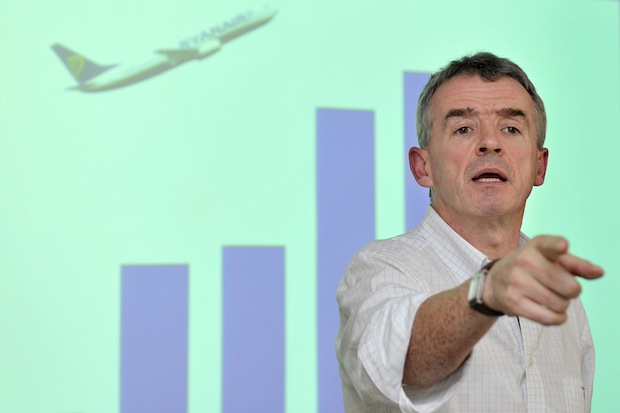
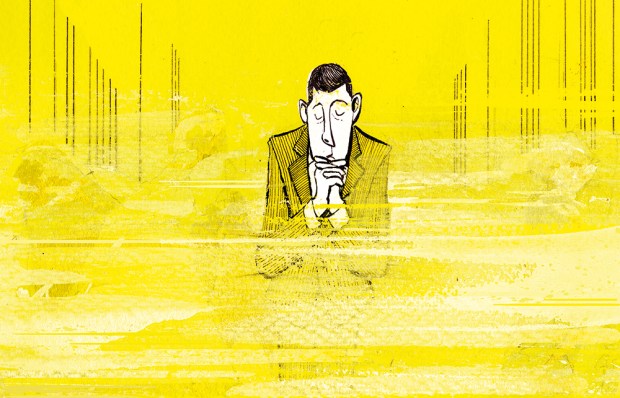

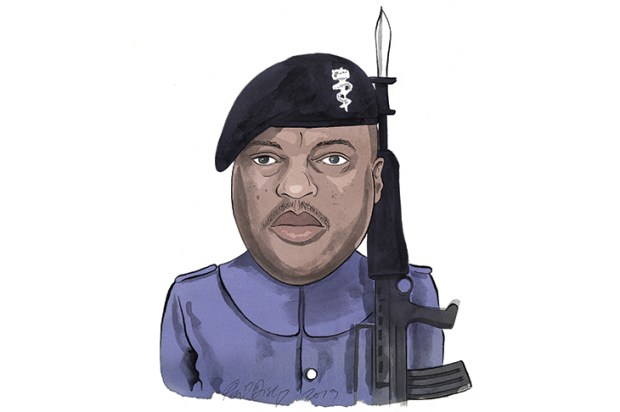
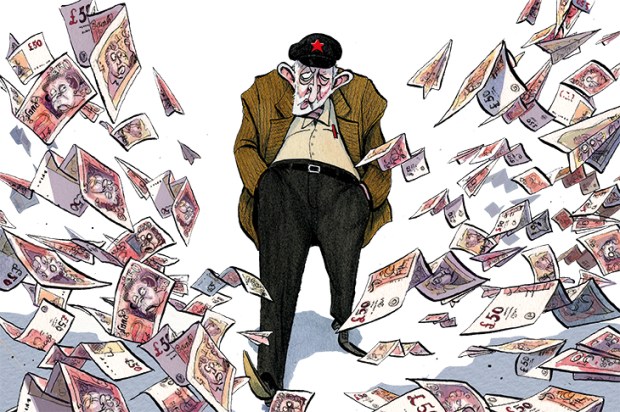
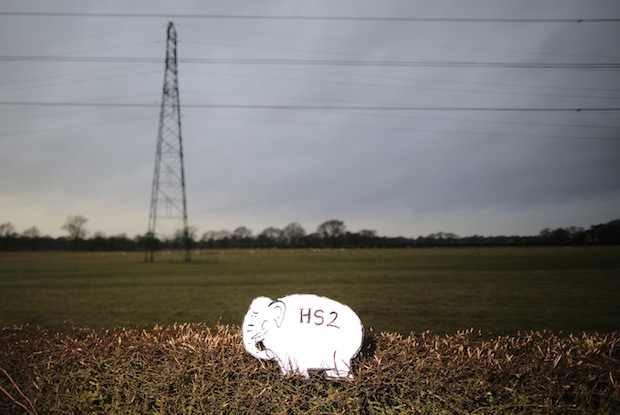
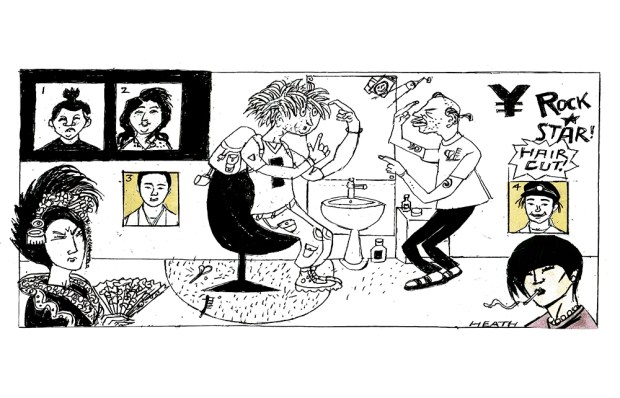






Comments
Don't miss out
Join the conversation with other Spectator Australia readers. Subscribe to leave a comment.
SUBSCRIBEAlready a subscriber? Log in